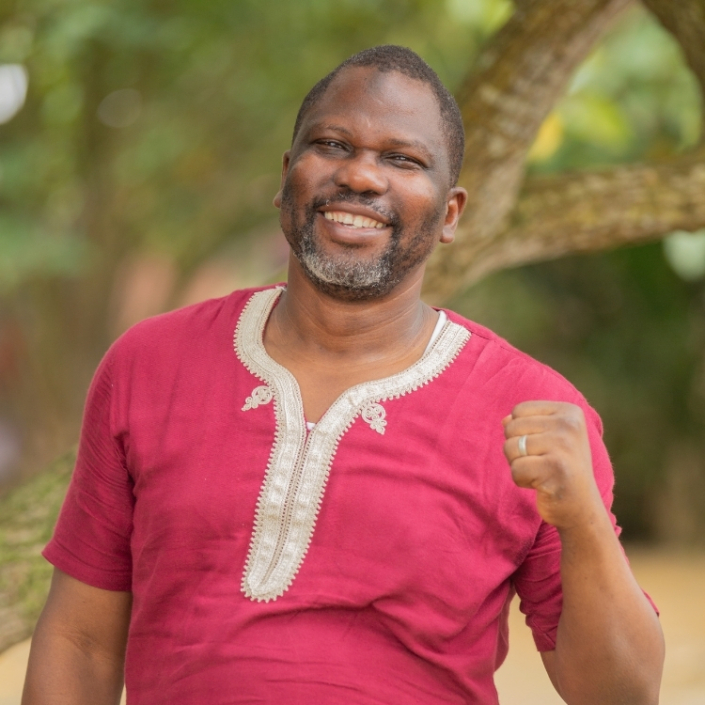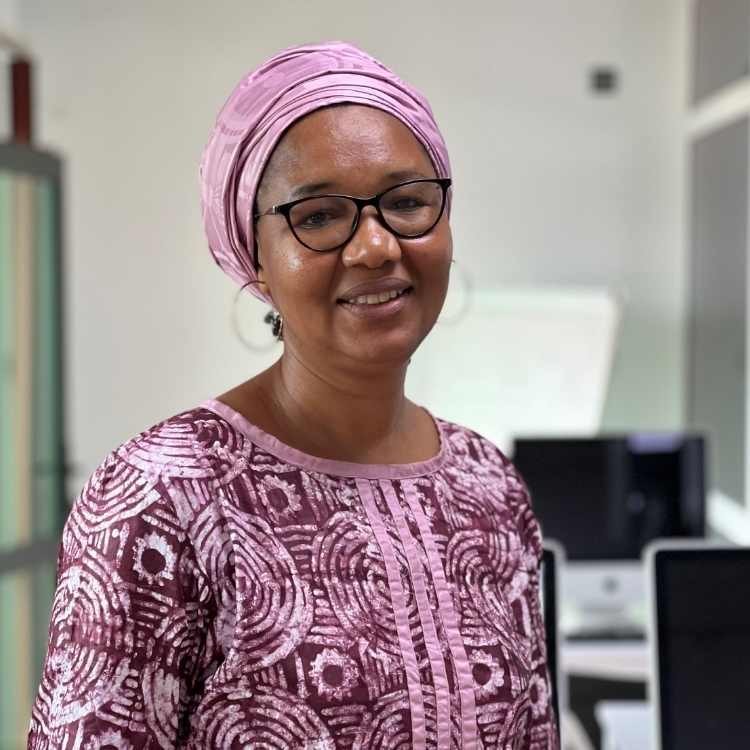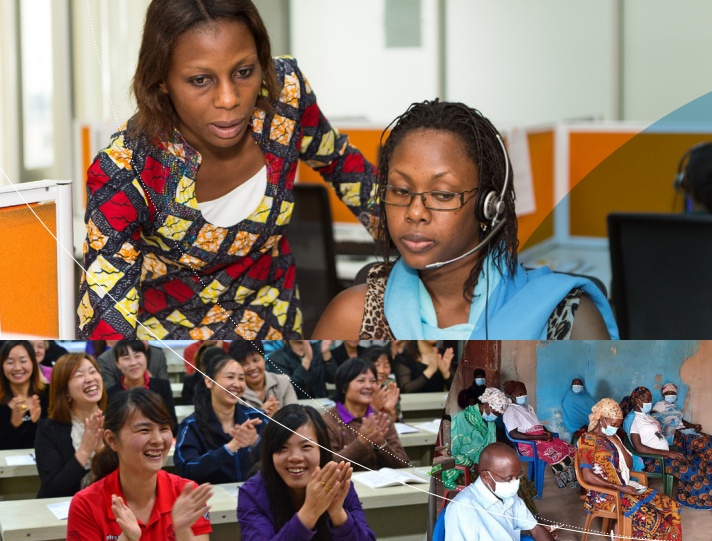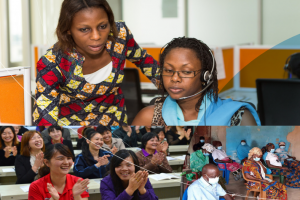In Côte d’Ivoire and Guinea, master trainers give wings to entrepreneurial dreams
When the COVID-19 pandemic derailed in-person business skills training in Côte d’Ivoire, Bamoussa Sanogo, trainer and senior manager of Africa Business Explorer, pivoted. “With the support of IFC, I earned my advanced master trainer certification and started offering online courses,” he says. This pandemic-era shift enabled his business to grow while giving local entrepreneurs—especially women—the skills they need to succeed.
 Bamoussa’s licensing—an IFC-supported accreditation through the Learning and Performance Institute (LPI)–qualified him to train other business trainers. It’s a critical need in Côte d’Ivoire, a resource-rich country where IFC’s engagement includes ensuring that local communities—including women and youth entrepreneurs—can share in the economic benefits of natural resource operations. “In Côte d’Ivoire, we now can certify other trainers,” Bamoussa says. “In the past, we had to bring in master trainers from abroad.”
Bamoussa’s licensing—an IFC-supported accreditation through the Learning and Performance Institute (LPI)–qualified him to train other business trainers. It’s a critical need in Côte d’Ivoire, a resource-rich country where IFC’s engagement includes ensuring that local communities—including women and youth entrepreneurs—can share in the economic benefits of natural resource operations. “In Côte d’Ivoire, we now can certify other trainers,” Bamoussa says. “In the past, we had to bring in master trainers from abroad.”
Aïssatou Diallo Barry, director of the Conakry Institute of Social Management (Institute de Gestion Sociale), also obtained her master trainer certification thanks to the program. Over the past five years, she has facilitated 12 train-the-trainer workshops in Côte d’Ivoire and Guinea, certifying about 80 trainers.
IFC’s work with Bamoussa, Aïssatou, and other veteran trainers improves the effectiveness and quality of business training and makes it more inclusive, scalable, and sustainable. Training of trainers is one component of the broader Canada-IFC Local Economic Development Program linked to infrastructure investment in Côte d’Ivoire, Ghana, Guinea, and Kenya. As of 2022, 208 trainers have been trained, of whom 83 are women. Of the total cohort, 61 trainers have continued to earn their master LPI certification.
About 4,500 have already seen business benefits after receiving training delivered by these professionals. Case-in-point: All 12 of the women entrepreneurs who participated in a Côte d’Ivoire workshop conducted by IFC-trained trainers implemented changes and improved their operating models, enabling them to access $53,000 in new financing.
GAME-CHANGING METHODOLOGY
According to Bamoussa, adopting the LPI methodology, a blend of business basics, and hands-on practice completely changed his instructional approach. “Entrepreneurs are coming to you because they want solutions they can use right away. This methodology teaches instructors to get straight to the point.”
The flexible approach encourages trainers to adapt their styles so they can meet adult learners’ needs. This way, the learning resonates even among those who lack a formal education. “It’s a methodology that can be applied to everyone, regardless of whether you are an office worker or a microentrepreneur without much schooling,” says Gabriel Atchori, a certified trainer in Côte d’Ivoire.
The support extends beyond the classroom for these trainers. It has given them newfound connections to a global community of like-minded professionals. The IFC-hosted Grow Learn Connect platform lets trainers access continuing learning opportunities and allows for knowledge sharing and engagement. It includes a directory of certified trainers, so companies and organizations in search of local trainers can quickly find the resources they need.
APPROACHES TO ATTRACT WOMEN’S PARTICIPATION
The certification process, with its emphasis on culturally appropriate instruction, also reinforces approaches to the classroom that tailor content and delivery to women’s needs. The methodology reflects an understanding that women’s and men’s circumstances are different—and that the learning environment needs to reflect these differences. In her classes, Aïssatou teaches novice trainers to engage with men and women in equal measure and to encourage women to speak up. “When women and men are in a mixed setting, women are sometimes intimidated by men,” she explains.
Bamoussa notes that attracting women participants can be challenging in rural areas, where many natural resource operations are located. “Here, women often don’t have the same status as men, so you cannot train women the same way as you train men.” His company has adopted approaches introduced in the master trainer program that engage more women, including hiring additional women trainers. “Forty percent of our trainers are women today,” Bamoussa says. “This makes sense because we are doing more training that includes women.”
“By training one becomes a trainer”

Aïssatou Barry, Guinea
As local demand for trainers grows, the trainers themselves are applying their new knowledge and skills, and further elevating the profession to enhance learning outcomes. “There’s an old African saying that you only become a blacksmith by forging,” says Aïssatou. “The same can be said for the training profession. It is by training that one becomes a better trainer.”
The professionalization of the local training industry has catalyzed growth. “When I remember my beginnings and see myself now, there has been such a great progression,” says Aïssatou. “A lot of the opportunities I’ve had are through the IFC program.” She has built a robust website, added e-learning options, and hired more staff. She has also expanded her course portfolio, adding offerings in marketing, operations management, health and safety management, and computer skills.
Bamoussa’s business is growing as well. He has increased his staff by 40 percent because of all the new contracts. “I couldn’t have achieved this without the IFC training program and certification,” he says.
The growth in the local industry has created a pipeline of qualified trainers to support IFC’s ongoing operations, as well as assist with IFC clients’ community development and local content programs. For example, Aïssatou has provided trainers for IFC local economic development and community engagement programs, including for Rio Tinto. Gabriel has supervised training for women so they could qualify for job opportunities with IFC’s energy client Azito.
Such efforts are strengthening local economies and paving the way for resilient and more sustainable small businesses, connecting them with the value chains of larger companies at a time when opportunities abound.






